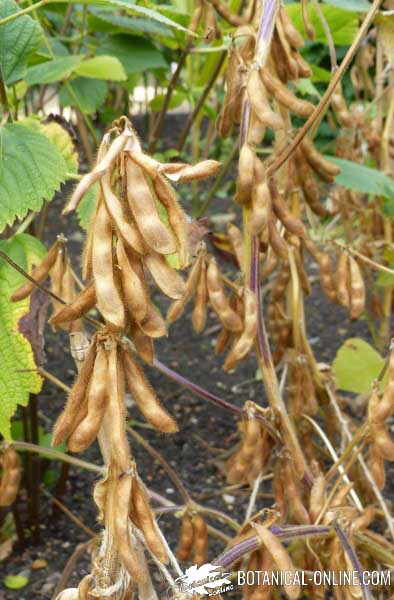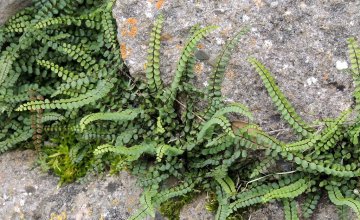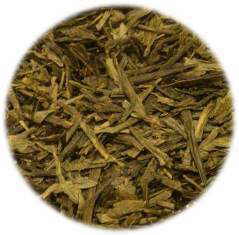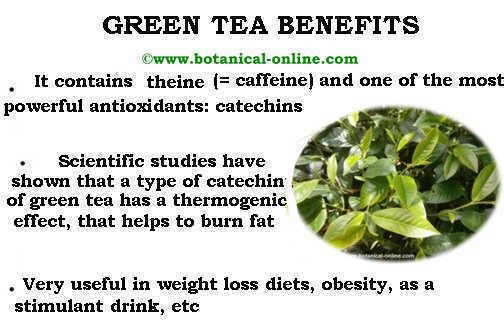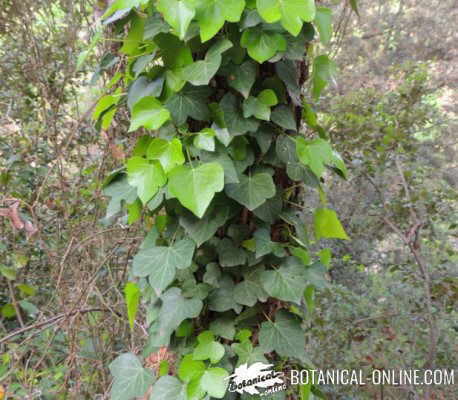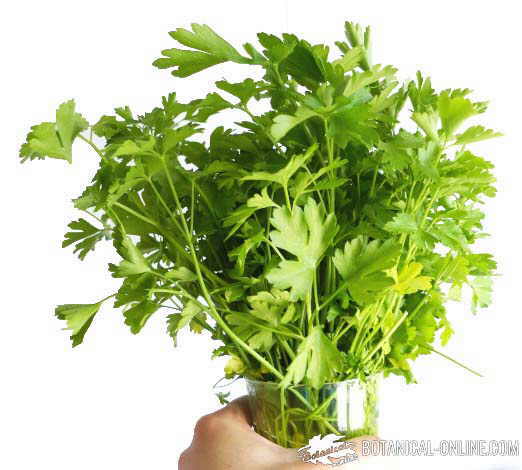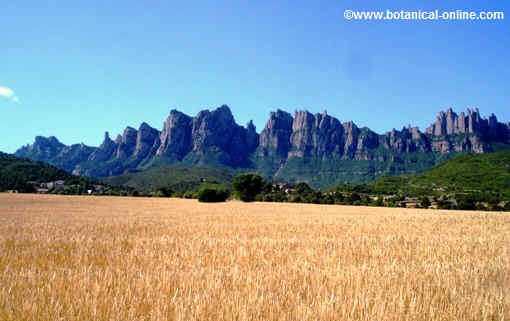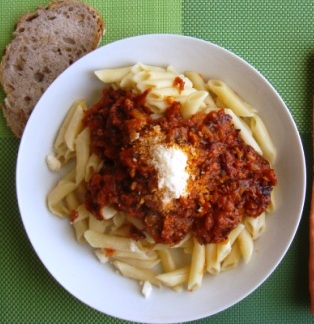Contents
- 1 What is ecological agriculture?
- 1.1 Definition of ecological, bio or organic food
- 1.2 What is the philosophy of organic food?
- 1.3 Does ecological mean that it has a bio seal?
- 1.4 What does the seal of organic or organic agriculture mean?
- 1.5 Ecological stamp errors
- 1.6 Buy organic does not mean eating organic
- 1.7 Local and seasonal foods are the most ecological
- 1.8 Is it environmentally friendly to use insecticides and phytosanitaries?
- 1.9 Save the seeds of the plantation for the following year
- 1.10 Avoiding all the packaging is logical?
- 1.11 Conclusions: How to cultivate ecologically?
- 1.12 How to consume organic foods?
What is ecological agriculture?
Definition of ecological, bio or organic food
In the first place, by definition, agriculture is never 100% ecological. Agriculture consists of modifying the ecosystem of a field eliminating certain plants and animals to cultivate other plants more interesting commercially or nutritionally.
This brutal modification of the environment makes a crop field the perfect target for pests and diseases.
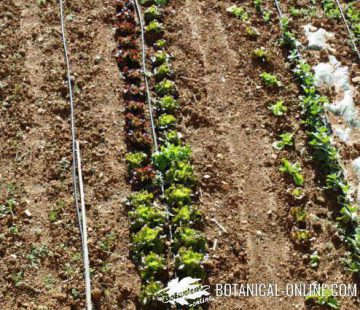
What is the philosophy of organic food?
Organic farming is the one that best optimizes resources, producing the least possible impact on the environment.
For the success of a greener agriculture there must be the conscience of ecological consumers, which would include buying local food, seasonal, and recycling waste.
In addition, for a totally organic diet, people should consume little meat, which is one of the foods with the greatest environmental impact of the diet.
Therefore, eating organic means much more than buying organic. Everyone can eat more ecologically, which does not necessarily mean buying more expensive food.
Does ecological mean that it has a bio seal?
Erroneously, many people understand as ecological food that one that has a seal or certificate called “seal of organic farming.” However, eating organic is not what that label means, at least, with current legislation.
The first confusion appears because the word “ecological”, which has a known definition in the dictionary, is used as a brand: Not everything that is labeled as “ecological” is really ecological.
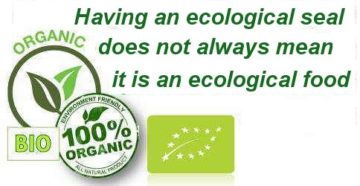
What does the seal of organic or organic agriculture mean?
The ecological seal only means that this product meets certain regulations. This regulation requires producers that in their crops do not use products of artificial synthesis or transgenic seeds, that is, they can only use certain pesticides, fertilizers and authorized antibiotics.
The majority of sensitized producers commit themselves to comply with the regulations required by ecological certification to demonstrate to their customers their commitment to the environment. To get this stamp, the farmer must pay more money, which affects the final price of the food.
Ecological stamp errors
The regulation of the “ecological seal” does not take into account some important factors of production that have a negative impact on the environment. Among the main errors of the “ecological seal”, we can point out the following:
- It does not take into account if a product is local or seasonal (carbon footprint, greenhouses, etc.). A product exported from thousands of kilometers can achieve the ecological seal.
- The use of synthetic synthesis pesticides is not allowed, but non-specific pesticides of natural origin can be used that are very toxic to the environment. That it is nonspecific means that, in addition to attacking pests, that pesticide affects other animals, for example, bees. The criteria should be changed to allow only those pesticides that are more specific and have less impact on the environment, which are really the most ecological.
- In many cases the use of biodegradable packaging is not taken into account
Ideally, we should not have to talk about organic and conventional agriculture, but all farmers should cultivate as ecologically as possible.
Buy organic does not mean eating organic
Not only producers have the responsibility to produce ecologically. The consumer also chooses to eat organic with their actions:
- The vegetable protein of the diet should be boosted: chickpeas, lentils, walnuts, almonds, … Eating a lot of meat is anti-ecological, even if it has the “stamp of ecological agriculture”
- That seasonal foods grown in the field predominate in the diet. If possible, avoid greenhouse vegetables, which are usually not seasonal
- Consume preferably local foods, grown in the country itself, whenever possible. Buy products exported from distant countries, is not sustainable
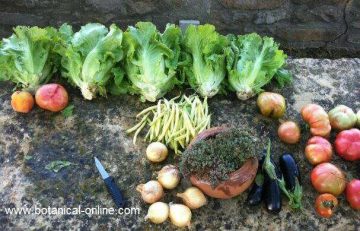
Local and seasonal foods are the most ecological
Organic farming should be the one that generates the least possible impact on the environment. To measure this impact, there is what is called the carbon footprint of a product. This concept refers to the resources consumed by a crop and those it produces.
With the current ecological legislation, paradoxically, a food can have the seal of ecological certificate even if it has been cultivated in greenhouses or comes from thousands of kilometers away from the country of sale, which is inconsistent given the polluting emissions it generates.
Therefore, the first requirement for a food to be organic is that it be locally grown. It is not necessary to resort to tropical fruits or other season to prepare delicious healthy recipes.
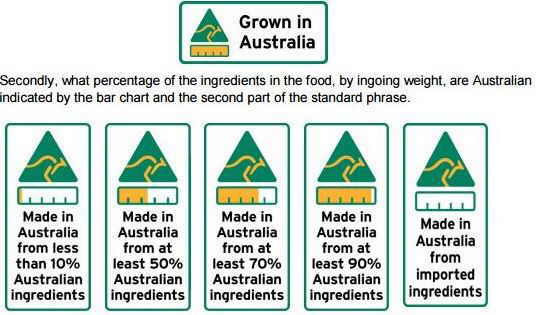
Is it environmentally friendly to use insecticides and phytosanitaries?
In a family garden, most times it is not necessary to use very aggressive chemicals, because there are home treatments against effective pests that can solve the problem.
In contrast, in an agricultural holding, the impact of a pest is much greater due to the extension of the crop. A plague can end with a whole plantation, infect nearby crops, alter the ecosystem and suppose not only a great economic loss but also a great loss of all the natural resources used to grow that crop (water, fertilizers, etc.). In addition, in countries where there is not enough food available, a pest may leave half of the population without food.
For these reasons, in cases where, unfortunately, a crop becomes sick, it is often necessary for the farmer to use products against pests. At this point, it is important to talk about the types of pesticides.
![]() More information: What is an ecological pesticide?
More information: What is an ecological pesticide?
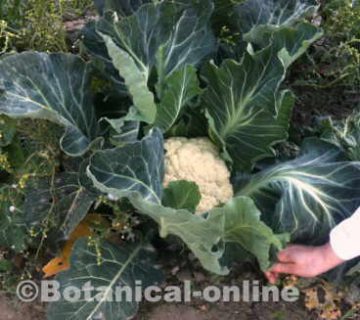
Save the seeds of the plantation for the following year
Saving the seeds of the most vigorous plants of the crop to be planted the following year is a practice that has been carried out ancestrally in agriculture and that has allowed the development of the varieties of edible plants that we know today.
However, it is a risky procedure, since during storage, the seeds can be damaged (by temperature, fungi, bacteria, viruses, etc.) and not germinate the following year. Although this is not a problem at the family garden level, applied to intensive crops, it translates into great economic losses.
For this reason, the majority of farmers who are dedicated to the operation buy certified seeds every year, whether they are ecological or not. In this way they ensure the germination of the seed and a productive harvest.
![]() More information: Problems to obtain organic seeds
More information: Problems to obtain organic seeds
Avoiding all the packaging is logical?
There are people in favor of consuming 100% natural foods without packaging because unpacked foods are the healthiest. Although this advice can be applied to a family garden, it is not suitable for the general population.
What should be demanded, which also does not contemplate the legislation of the seal of ecological or organic agriculture, is products to be packaged in biodegradable materials.
It is true that many packaged products are usually unhealthy because of their content in bad fats, salt or a lot of sugar: pizzas, precooked foods, sausages, sausages, cold cuts, biscuits, etc., but this is no reason to buy without packaging.
All foods, including fruits and vegetables, are required to have a packaging with a barcode or label with their reference. This gives information and guarantees that the production company has paid its taxes and passed the sanitary controls to prevent contaminated food from entering the market.
Therefore, whether a food is packaged or not, is not an ecological food criterion, what should be asked is that the packaging is biodegradable.
Conclusions: How to cultivate ecologically?
The ecological producer should be advised by agricultural engineers who will indicate which techniques are most suitable for their agricultural exploitation, using only the strictly necessary products and those more respectful with the environment (fertilizers, pesticides, etc.). If possible, one should grow food in season and not in greenhouse.
To show commitment to the environment, many farmers invite their clients to visit them and learn about their production method. On their website or in the packaging of their products they can add all kinds of information that they think is convenient to show their commitment to the environment. These practices, in addition to showing transparency, help to retain customers.
Whenever possible, avoid using polluting materials in the packaging of your products.
How to consume organic foods?
As organic consumers, the best way to eat organic is:
- To buy local foods and in trusted stores
- To avoid those that have been grown in greenhouses or that come from thousands of kilometers.
- The diet should be richer in foods of vegetable origin than animal origin
- Whenever possible, give preference to brands that use biodegradable materials in their packaging.
In short, there is still a long way to go to develop a more ecological and fair agriculture worldwide. Everyone on this path, both consumers and producers, have an important role.
![]() More information on natural food
More information on natural food

